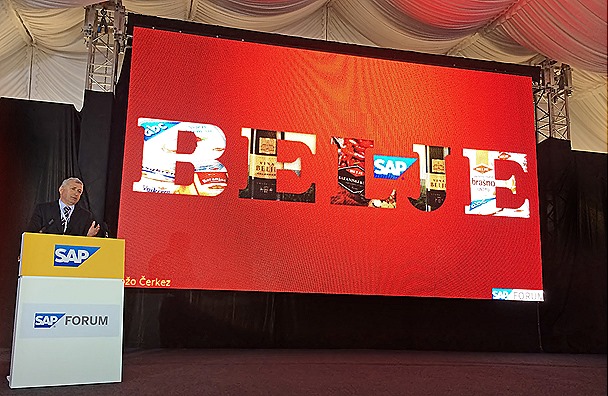Even when business conditions are hard there are always some companies doing well.
I was in Croatia for the SAP Forum Zagreb this week. Like many other countries in Europe, the local economy has been suffering after five recessionary years — and there is still no clear recovery on the horizon.
Yet last year the top 30% of companies managed to increase revenues by 5% or more, and in the consumer goods sector the top 20% of companies increased profits by over 10%.
What’s the key to doing well even if others are not? It’s using the latest technology to turn the biggest market challenges to your advantage:
- Customers are more demanding than ever? That’s good news for companies that can provide a more personalized, omni-channel customer experience.
- Employees have high expectations? A new generation of Millenials are joining the workforce – and are horrified by the systems and processes they have to use. There are high rewards for companies that can give employees a mission and purpose linked to the goals of the organization, and provide them with the collaborative tools then need to achieve those goals
- Resources are tight and costs are rising? One company recently told me that higher material costs aren’t unwelcome news — as long as their competitors face the same conditions. Why? Because they have more efficient processes. A comparative advantage that will bring them long-term market share gains that outweigh the short term pain.
New technologies like social, mobile, big data, and cloud represent new opportunities for business innovation.
But when money is tight, most of the IT budget is used in “just keeping the lights on” – maintaining existing, complex system – and there’s little money left over for experimentation.
The good news is that these technologies can also help radically simplify existing IT landscapes, freeing up resources to work on the “big ideas” of the future. In-memory platforms mean less data movement and storage, eliminating complexity. Intuitive mobile interfaces make it easier and cheaper to get more information to more people who need it. Better, faster analytics means more efficiency gains.
 A good example of this in Croatia was the presentation by Božo Cerkez of Belje, one of the largest agricultural concerns in the country. They are using new technology such as mobile devices in the fields to monitor crop conditions, automatic GPS-driven tractors, and an extensive SAP system that is used to track every aspect of food production “od polja do stola” – from the field to the table.
A good example of this in Croatia was the presentation by Božo Cerkez of Belje, one of the largest agricultural concerns in the country. They are using new technology such as mobile devices in the fields to monitor crop conditions, automatic GPS-driven tractors, and an extensive SAP system that is used to track every aspect of food production “od polja do stola” – from the field to the table.
Belje is investing in the new approaches not because they have lot of spare money to invest — but because, faced with increased competition, compliance regulations, and the need for more efficiency, they can’t afford not to.
If a company in the oldest industry in the world, that can trace its history all the way back to 1697 is using new technology to get an edge, the chances are you can, too!
